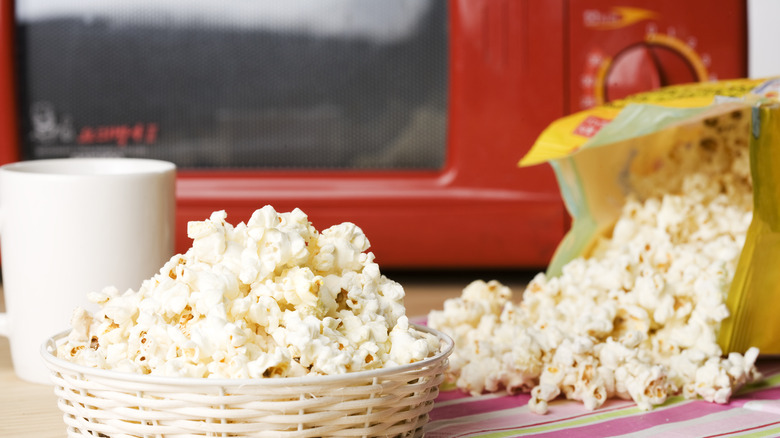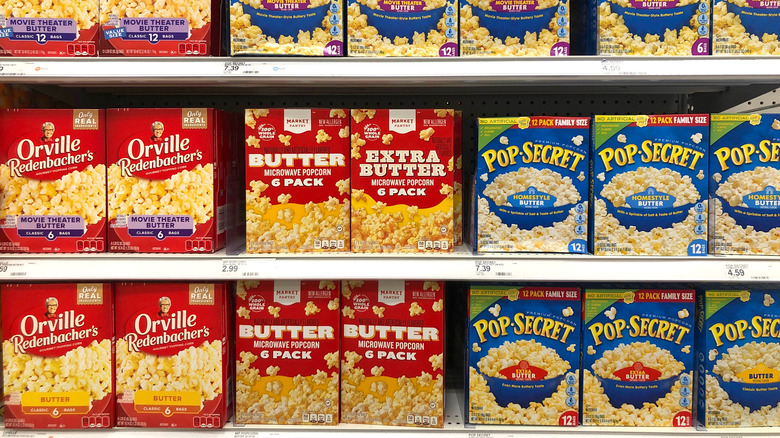The 2-Second Rule That Tells You When Microwave Popcorn Is Done
Microwave popcorn is a gift from the convenience gods. Depending on your microwave, you can be stuffing your face with handfuls of popcorn within two to four minutes. However, this crunchy snack is not without its perils. Let your microwave popcorn pop too long and you end up with a bag of burnt to a-crisp inedible popcorn, but if you don't allow it to finish popping, you might be biting down on yet-to-be-popped kernels. Either scenario is not appetizing.
Luckily, if you follow the universal two-second rule which says to stop your microwave once there are between two to three seconds per pop, you shouldn't have to deal with either. Of course, you will still have some errant kernels that won't have popped, but chances are they weren't going to anyway. However, this also leads us to the reason you don't want to use that pre-programmed popcorn button on your microwave, as tempting as it might be to do so.
Moisture is also a critical factor
Preprogrammed buttons are convenient, but they lead to overcooked microwave popcorn. This is because most microwaves are not able to tell if humidity is present and according to a study published on Science Direct, moisture content is the single greatest influencer when it comes to popping popcorn. The report explains this is because moisture, which includes humidity, contributes to the pressure build-up in the part of the kernel where starch is produced and stored. Too much or too little moisture and you reach that point of diminishing returns where popcorn burns or does not pop at all.
This is why vigilance and the two-second rule are critical when making microwave popcorn. Of course, other factors also impact this snack food. The quality of the kernels being used, along with their size can play a key role in the end product. But once you have your fluffy pillows of popped corn, don't be afraid to turn to those sweet and savory seasonings and spices that can transform your store-bought bag into something gourmet.

